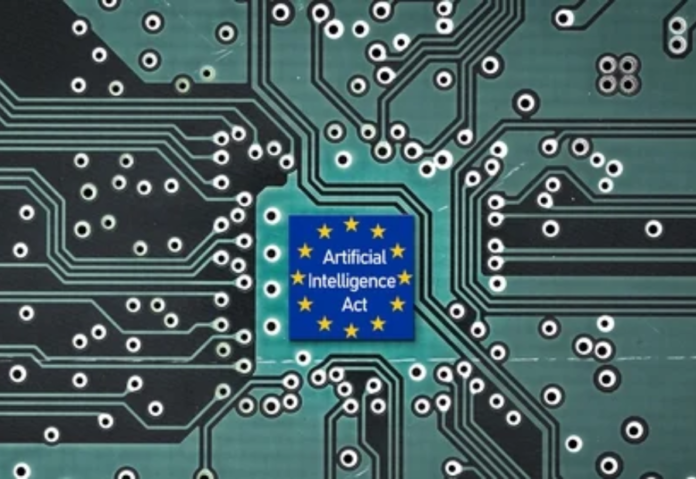Europe’s historic AI legislation, which could set a global norm for a technology used in daily life and industry, will take effect next month after the EU members endorsed a political accord agreed to in December on Tuesday.
Following the EU countries’ Tuesday endorsement of a political agreement negotiated in December, Europe’s historic AI regulations will go into effect next month, potentially establishing a global standard for a technology utilized in everyday life and business.
China’s strategy is to preserve societal stability and governmental control, whereas the European Union’s AI Act is more extensive than the US voluntary compliance method.
The EU countries voted two months after their legislators, following several significant revisions, approved the AI legislation developed by the European Commission in 2021.
In recent months, worries about AI feeding false information, fake news, and copyrighted content have grown worldwide due to the rising popularity of generative AI systems like Google’s (GOOGL.O) chatbot Gemini and Microsoft-backed OpenAI’s (MSFT.O) ChatGPT.
The Belgian Minister of Digitization, Mathieu Michel, said in a statement that “this landmark law, the first of its kind in the world, addresses a global technological challenge that also creates opportunities for our societies and economies.”
“With the AI Act, Europe emphasizes the importance of trust, transparency, and accountability when dealing with new technologies, while at the same time ensuring this fast-changing technology can flourish and boost European innovation,” he stated.
High-risk AI systems are subject to stringent transparency standards under the AI Act, whereas general-purpose AI models will be subject to less stringent regulations.
It limits the use of real-time biometric surveillance in public areas by governments to cases involving specific crimes, stopping terrorist attacks, and looking for suspects in the most serious offenses.
The new laws will affect more than just the 27-nation bloc, according to Patrick van Eecke of Cooley Law.
“The Act will be applicable everywhere. Businesses outside the EU will have to abide by regulations if they utilize EU customer data in their AI platforms. Just as they did with the GDPR, other nations and areas will probably utilize the AI Act as a model,” he stated, alluding to EU privacy regulations.
The new law will go into effect in 2026, but six months after it does, restrictions on the use of AI for social scoring, predictive policing, and untargeted face-image scraping from the internet or CCTV will be put in place.
Rules for AI systems integrated into regulated products will take effect in 36 months, while obligations for general-purpose AI models will take effect after 12 months.
Depending on the type of infraction, fines can vary from 7.5 million euros ($8.2 million), or 1.5% of sales, to 35 million euros, or 7% of global turnover.
Also read: Unveiling the Ethical Imperatives: Navigating the Intersection of AI and Cybersecurity
Do Follow: CIO News LinkedIn Account | CIO News Facebook | CIO News Youtube | CIO News Twitter
About us:
CIO News is the premier platform dedicated to delivering the latest news, updates, and insights from the CIO industry. As a trusted source in the technology and IT sector, we provide a comprehensive resource for executives and professionals seeking to stay informed and ahead of the curve. With a focus on cutting-edge developments and trends, CIO News serves as your go-to destination for staying abreast of the rapidly evolving landscape of technology and IT. Founded in June 2020, CIO News has rapidly evolved with ambitious growth plans to expand globally, targeting markets in the Middle East & Africa, ASEAN, USA, and the UK.
CIO News is a proprietary of Mercadeo Multiventures Pvt Ltd.






